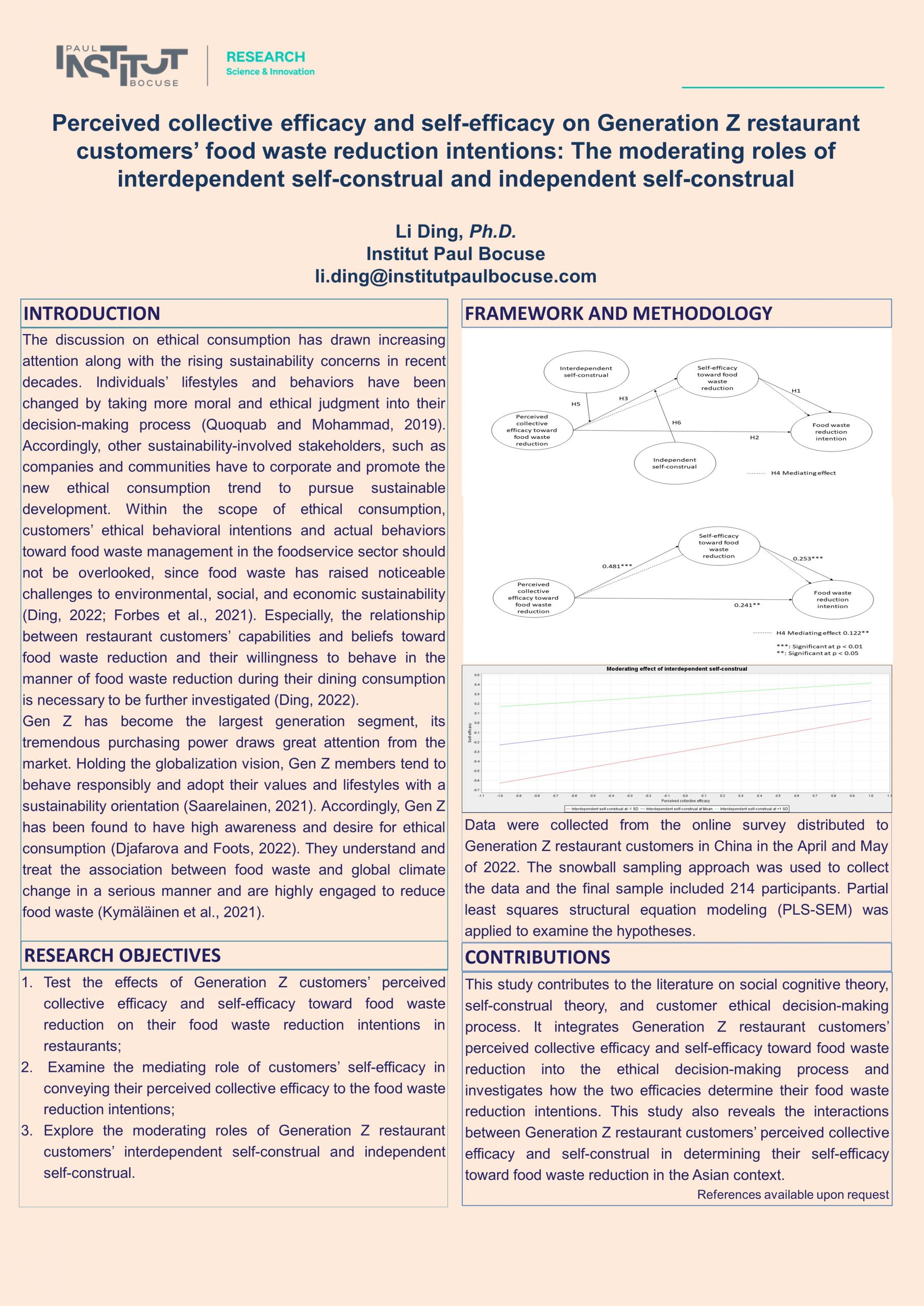Perceived collective efficacy and self-efficacy on Generation Z restaurant customers’ food waste reduction intentions: The moderating roles of interdependent self-construal and independent self-construal
This study aims to (1) examine the effect of restaurant customers’ perceived collective efficacy toward food waste reduction on their self-efficacy toward food waste reduction, (2) test the effect of perceived collective efficacy toward food waste reduction on customers’ food waste reduction intention, (3) investigate the mediating role of self-efficacy in the relationship between perceived collective efficacy and food waste reduction intention, and (4) explore the moderating roles of customers’ interdependent self-construal and independent self-construal in the proposed framework. The findings are expected to bring innovative thoughts on restaurant customers’ food waste reduction attitudes and behaviors.










